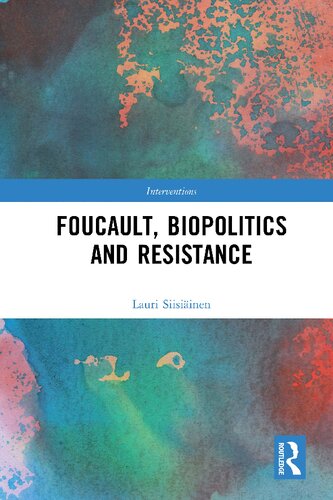

Most ebook files are in PDF format, so you can easily read them using various software such as Foxit Reader or directly on the Google Chrome browser.
Some ebook files are released by publishers in other formats such as .awz, .mobi, .epub, .fb2, etc. You may need to install specific software to read these formats on mobile/PC, such as Calibre.
Please read the tutorial at this link: https://ebookbell.com/faq
We offer FREE conversion to the popular formats you request; however, this may take some time. Therefore, right after payment, please email us, and we will try to provide the service as quickly as possible.
For some exceptional file formats or broken links (if any), please refrain from opening any disputes. Instead, email us first, and we will try to assist within a maximum of 6 hours.
EbookBell Team

4.3
88 reviewsPolitical resistance is flourishing. In this context, there is a growing interest to reread Michel Foucault’s work, especially from the late period, from the perspective of resistance, social movements and affirmative biopolitics. Yet what has been missing so far is a book-length, comprehensive study focusing on this topic. This volume undertakes this task, providing an original typology of the resources of resistance discovered in Foucault’s late thinking:
The book shows how these different types of tools, arts and practices can be used in resistant politics, in struggles against various regimes and institutions of power and government, so that they mutually supplement and reinforce one another. The author embarks on advancing Foucault’s insights on resistance from where he stopped. Furthermore, the volume proposes a novel assessment of the Foucauldian political toolkit in the 21st century context, addressing its pertinence for struggles against neoliberalism and post-Fordist capitalism.
Foucault, Biopolitics and Resistance will be an important resource for students and scholars interested in Foucault, resistance and 21st century politics within many fields, including political science, international relations, contemporary and continental philosophy as well as sociology. The work elaborates fresh methodological insights, fruitful for further empirical research on social and political movements.